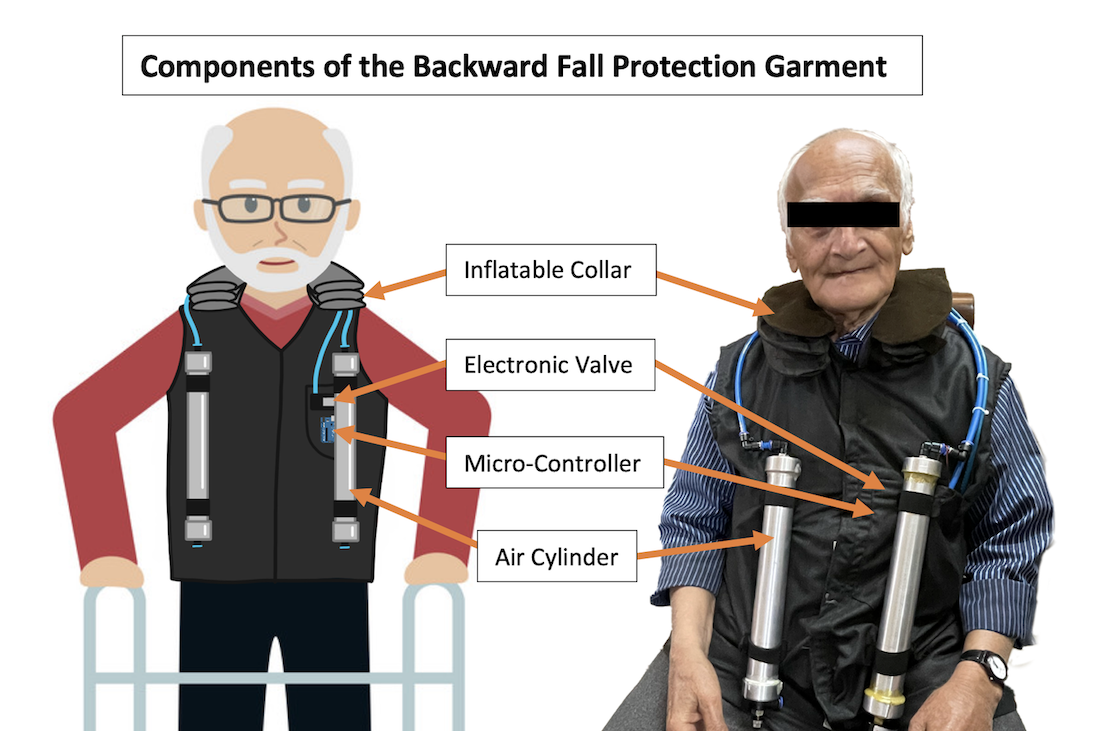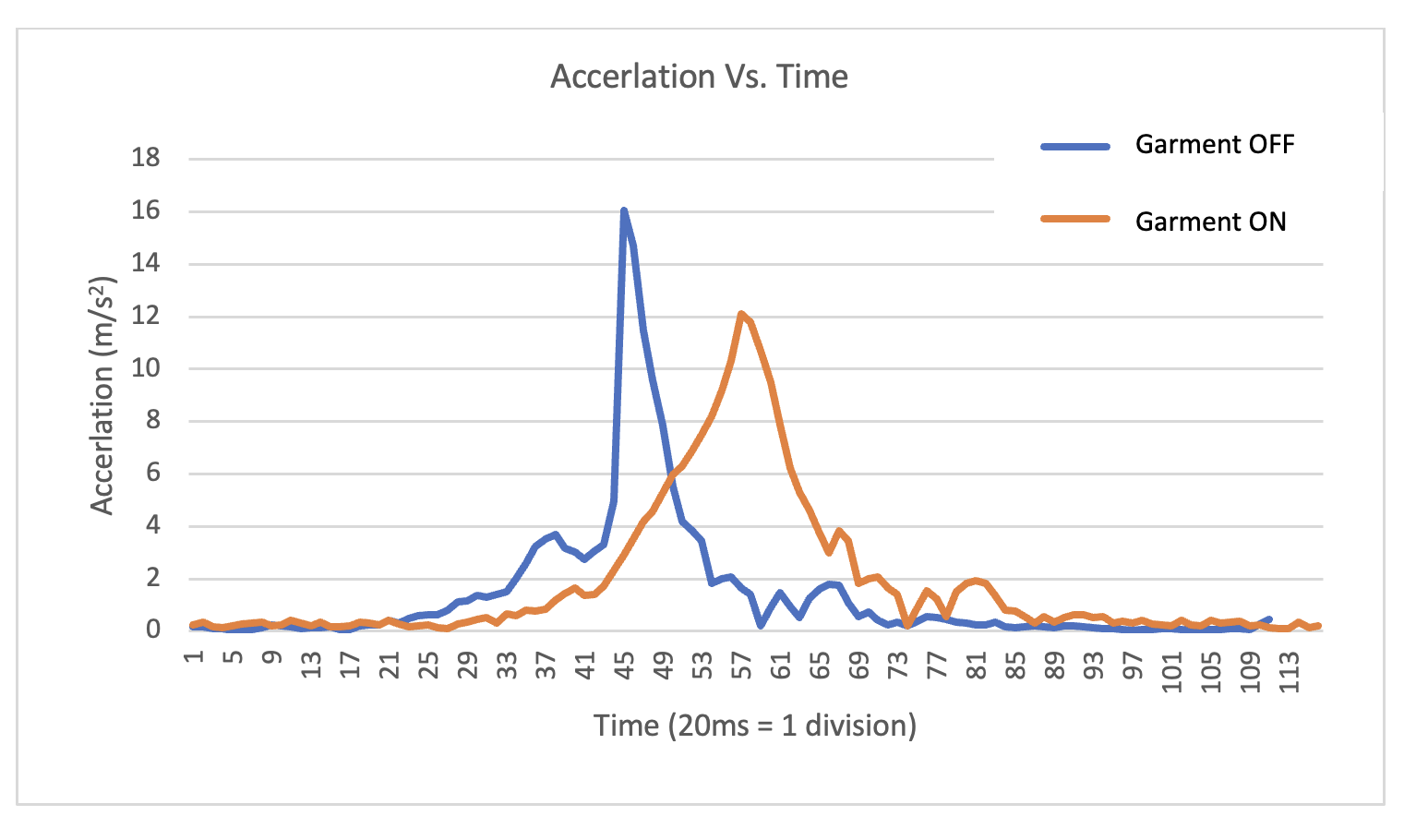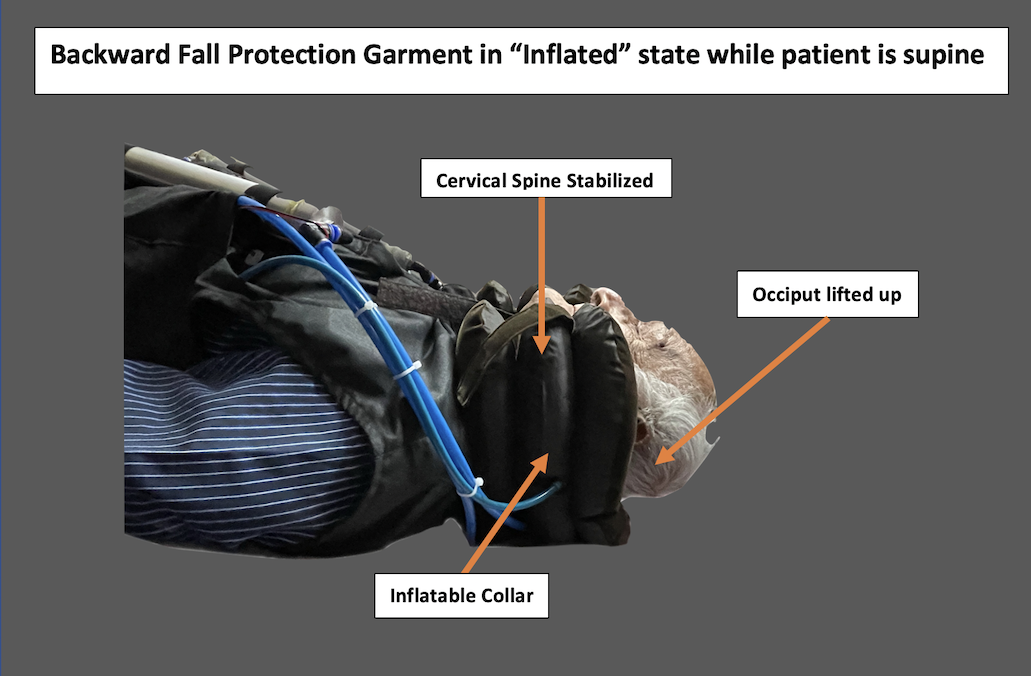Category: Parkinsonism, Atypical: PSP, CBD
Objective: To create a sensor controlled wearable system with an inflatable collar that offers protection against head, spine and shoulder girdle injuries in case of a backward fall.
Background: Patients with Parkinsonian Syndromes, particularly Progressive Supranuclear Palsy (PSP) have frequent episodes of a backward fall with an average incidence of 2 falls/month [1]. Walking aids can help break a forward fall, but offer no protection against a backward fall. In a study of 1092 Parkinsonian patients over a period of 2 years, 597 (54.6%) suffered a fall, out of which 388 (65.0%) sustained an injury [2]. It was estimated that the average cost per non-fatal fall in the US was $9463 for the geriatric population [3]. Thus backward falls result in significant morbidity and a major cause of hospital admissions in patients with PSP and other Parkinsonian Syndromes.
Method: We built a novel pneumatic garment consisting of two air cylinders, a triaxial sensor, an electronic valve and an inflatable collar [figure1]. The triaxial sensors detected a backward fall, opening an electronic valve, thus inflating the cervical collar in under 200 milliseconds. Five healthy volunteers were chosen to test the Fall Protection Garment. Peak acceleration/jerk of Impact was measured using head mounted accelerometers. Subjects were made to fall backwards onto soft mattresses – with and without the garment being turned on.
Results: With the garment turned off, the average peak acceleration of the head upon impact was 13.02±1.77 m/s/s and with the garment turned on was 8.26±2.13 m/s/s [table1][figure2]. There was a 36.5% reduction of the impact jerk with the fall protection garment turned on (P<0.05). Additionally, the inflatable collar offered protection to the occiput, shoulder girdle and stabilised the cervical spine [figure3].
Conclusion: There was a significant reduction in the peak jerk of impact with the garment. As backward falls commonly resulted in fractures of the occiput and shoulder girdle [2], our novel garment could help prevent serious complications of a backward fall in patients with Parkinsonian Syndromes.
References: 1. Zwergal A, la Fougère C, Lorenzl S, Rominger A, Xiong G, Deutschenbaur L, et al. Postural imbalance and falls in PSP correlate with functional pathology of the thalamus. Neurology. 2011;77:101–9. 2. Wielinski CL, Erickson-Davis C, Wichmann R, Walde-Douglas M, Parashos SA. Falls and injuries resulting from falls among patients with Parkinson’s disease and other parkinsonian syndromes. Mov Disord. 2005;20:410–5. 3. Burns ER, Stevens JA, Lee R. The direct costs of fatal and non-fatal falls among older adults – United States. J Safety Res. 2016;58:99–103
To cite this abstract in AMA style:
H. Singh, D. Singhal, N. Sawal, A. Beri, S. Kumar, G. Hundal, A. Chawla. Backward Fall Protection Garment for patients of PSP and other Parkinsonian Syndromes. [abstract]. Mov Disord. 2021; 36 (suppl 1). https://www.mdsabstracts.org/abstract/backward-fall-protection-garment-for-patients-of-psp-and-other-parkinsonian-syndromes/. Accessed December 19, 2025.« Back to MDS Virtual Congress 2021
MDS Abstracts - https://www.mdsabstracts.org/abstract/backward-fall-protection-garment-for-patients-of-psp-and-other-parkinsonian-syndromes/




